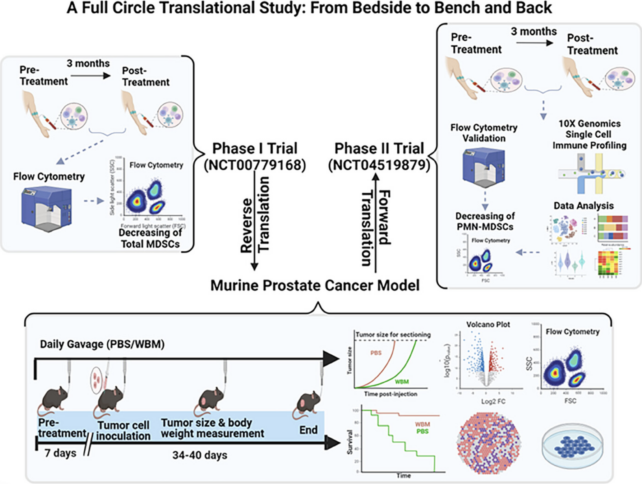Common Condition May Double Risk of Erectile Dysfunction, Study Finds
Men with irritable bowel syndrome are more than twice as likely to develop erectile dysfunction, a s...
Exotic mushrooms like the Lion's mane have become famous for their medicinal promises, but even the most basic of fungal fruiting bodies may be hiding powerful immune benefits.
The white button mushroom (Agaricus bisporus) is the world's most cultivated edible mushroom, and while it is not usually considered 'medicinal', emerging evidence from mice and humans suggests its extract can possibly slow or even prevent the growth of prostate cancer.
To date, the US Food and Drug Administration (FDA) has never approved a food-derived product as an anticancer medicine, so the road ahead is steep.
Nevertheless, scientists at the City of Hope – a cancer research and treatment organization in the US – say they are following the FDA's regulatory guidelines to provide a "scientific foundation" by which to prove the health effects of this mushroom.
After years of work, they argue their newest findings strengthen the rationale for white button mushrooms as a "nutraceutical approach to slow the progression of prostate cancer," when given as an adjuvant therapy after a primary treatment.
"We're finding that plant-derived substances may one day be used to support traditional cancer treatment and prevention practices," explains cancer biologist Shiuan Chen from the City of Hope.
"This study suggests that 'food as medicine' treatments could eventually become normal, evidence-based cancer care that is recommended for everyone touched by cancer."

Like many tumors, prostate cancer guards against the body's attacks by churning out what are known as myeloid-derived suppressor cells (MDSCs); immature white cells with a knack for suppressing the body's immune response.
White button mushrooms may have the power to bust through this shield. In a previous phase I clinical trial, researchers at the City of Hope found promising signs that white button mushroom extract can lower the toxicity profiles of prostate cancer cases, with signs in a handful of volunteers of a decline in circulating MDSCs. After consuming mushroom tablets twice daily for months, some individuals had markers of prostate cancer in their blood decrease to undetectable levels.
Now, a follow-up study on mice and a phase II clinical trial, involving blood samples taken from patients with prostate cancer, digs into the possible mechanisms behind this effect.
In mouse models of prostate cancer, the mushroom's extract significantly delayed the growth of tumors and extended survival.
Specifically, researchers found mice treated with the extract showed lower levels of tumor-derived suppressor cells in their blood.
Meanwhile, in an ongoing phase II clinical trial, scientists have measured fewer suppressor cells and more anti-tumor immune cells in patients with prostate cancer treated with the mushroom extract.
The results suggest white button mushrooms can boost anti-cancer immune defenses and slow cancer growth, when given as part of other therapies.
What exactly it is within the mushroom extract that achieves this incredible outcome is unknown.
Botanical products, like plant material, algae, or fungi, contain a huge number of chemicals, which means that if they do have anti-cancer properties, it is possibly because they tackle a wide range of cancerous routes all at once.
Whittling down the candidates is tedious work, which is why clinical trials are advised to focus on safety and efficacy more than mechanism of action.
The mushroom extract may contain soluble fibers, proteins, lipids, and phytochemicals, all of which could have toxic effects on cancer cells.
"While our research has promising early results, the study is ongoing," says Xiaoqiang Wang, City of Hope staff scientist and first author of the study.
"That said, it couldn't hurt if people wanted to add more fresh white button mushrooms to their everyday diet."
The study was published in Clinical and Translational Medicine.

Men with irritable bowel syndrome are more than twice as likely to develop erectile dysfunction, a s...

Dementia is the leading cause of death across the world Dementia is a devastating condition that oft...